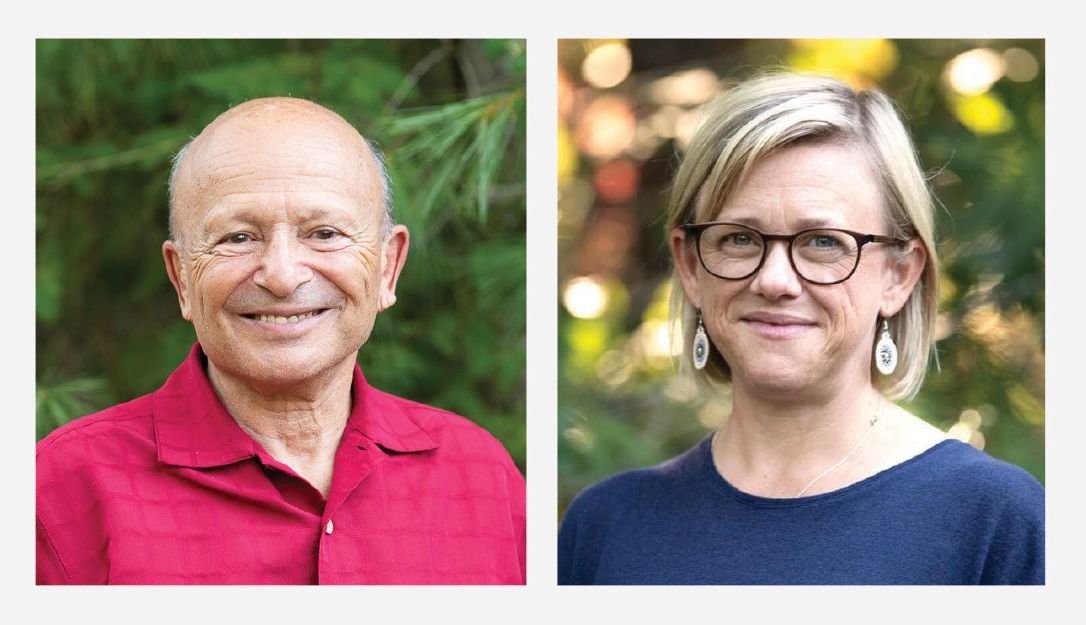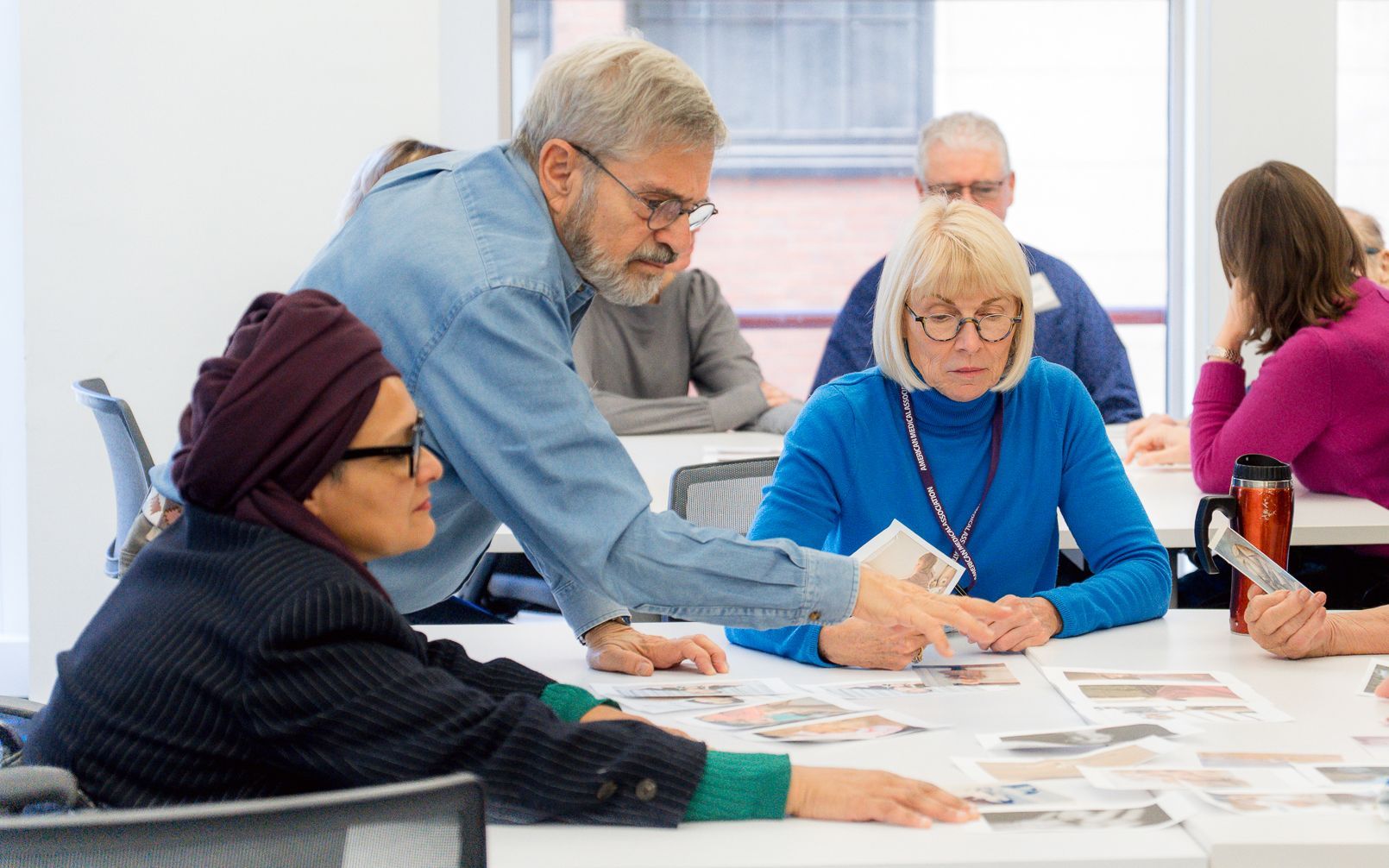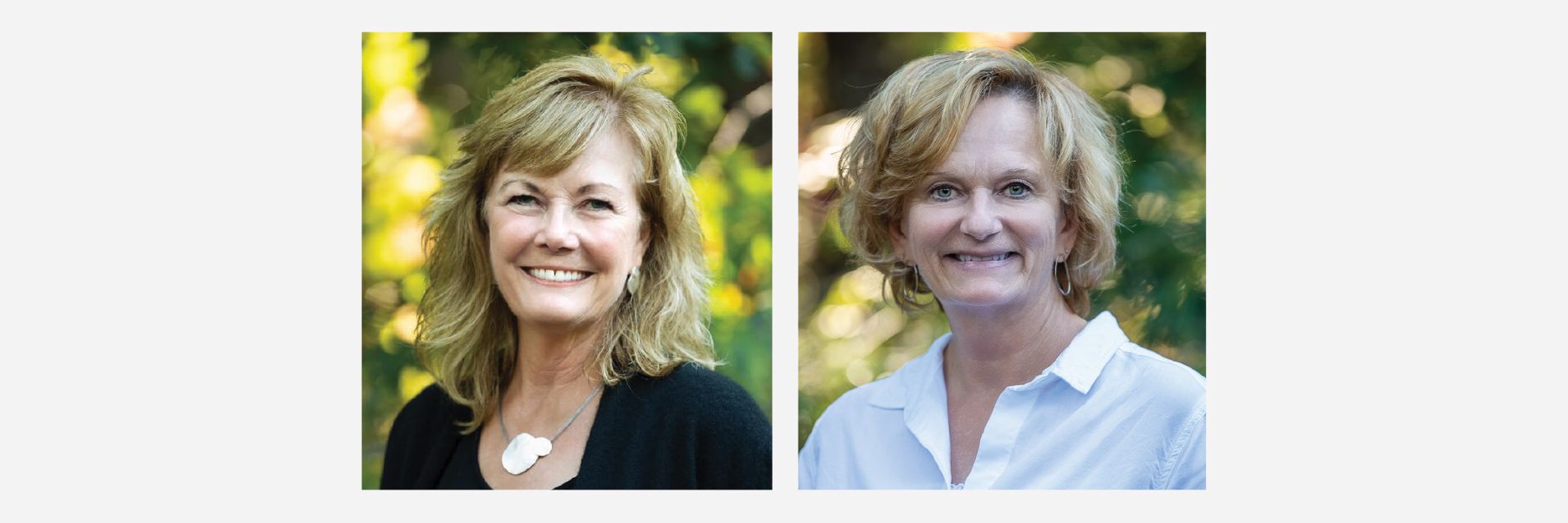An Interview with Cape Cod Training Program Faculty
This fall, GISC’s renowned Cape Cod Training Program (CCTP) returns to Europe, bringing its powerful learning model to London. Here, faculty members Joe Melnick and Lucy Ball reflect on what makes the Cape Cod Model so impactful and the program so enduring after more than four decades of practice.

What are you most excited about in bringing CCTP to London this fall?
Joe: I am excited to be returning to London to teach the Cape Cod Training Program with my colleagues Lucy Ball and Gaynor Sharp. Prior to Covid, we taught the program in Europe for many years: not only in England, but in Denmark, Greece, Ireland, Spain, Sweden and numerous other countries. I particularly enjoy the mixture of participants...not just their different countries of origin, but their different personalities, interests and professions...therapists, coaches, consultants, as physicians, lawyers, academicians and others wishing to learn a new way of "seeing" and interacting with others.
Lucy: No airports for me! I’m based in the UK, so it’s a train ride away this time. I’m excited to meet the cohort; I always learn so much from our participants. Our classes tend to become supportive learning communities and I’m constantly touched by what gets co-created. The Cape Cod Model has a long history and I feel like I’m handling precious material that has been honed by dedicated practitioners. It also keeps evolving. We are constantly learning and developing how we teach. I’m looking forward to teaching with Joe Melnick and Gaynor Sharp who are steeped in Gestalt theory and practice and who mean a lot to me.
What makes the Cape Cod Training Program - which is now over 40 years old, so relevant in today’s world?
Joe: In this world of increased polarization, the Model goes beyond the content of learning how to "see" differently, beyond the individual. It values some of the Gestalt approach's fundamental principles such as: Growth and change come from the meeting of differences; Optimism is necessary to manage uncertainty and create resilience, and; Awareness leads to growth and change – timeless concepts for living in today’s world.
Lucy: I will answer this from a personal point of view. I find the Cape Cod model a deeply supportive, multi-layered resource for living and working as a consultant, coach, therapist, parent, partner, friend and human being. Our notions of Co-creation, Contact and the Cycle of Experience help me manage connection to myself and to others. Our ideas about Resistance help me stay curious and grateful. Our concept of Optimism helps me find agency in the face of overwhelm or despair. Our holistic approach, emphasising awareness, helps me access emotional and somatic wisdom as well as cognitive. The way we think about systems gives me a way to work with what is co-created, complex, mysterious or unknowable. There is a lot in the world that is hard to be aware of and I feel supported by the model and the GISC community to turn towards life and handle the range of human experience.
Why is the Cape Cod Model so important for practitioners working today?
Lucy: I think practitioners working today need tools to support brave and humble intervening in complex social dynamics. The Cape Cod Model provides maps and approaches for tricky territory. We help practitioners to grow their presence so that they can build the trust needed to do difficult work. The program is experiential. We learn in our bodies by practicing the model live. This takes some courage and vulnerability on behalf of faculty and students alike, so we provide plenty of the support, structure, care and humour that makes practicing something new possible. When I first attended the program I knew that I was learning in my bones not just ‘learning about’ but ‘learning by doing.’ I felt expanded and more capable of supporting my clients.
Joe: Among the many things I love about the program, is our joint commitment and ability to create connections and a learning community in which trust is developed, making it safe to take risks and explore different aspects of oneself and relationships with others. Our teaching is highly experiential and is blended with lively lectures. We understand that participants pay as much attention to how we are with each other and with each of them, as to the content of the course.
Some people say that the Cape Cod Training Program is "life changing." Do you agree and, if so, why?
Lucy: I don’t like to be told what an experience will be like. If you say “Lucy, come on this program, it’ll be life changing!”, I will fold my arms and think to myself “I’ll be the judge of that!” What I can say is that the Cape Cod Model and the community at the Gestalt International Study Center have had a profoundly positive impact on my work and on my development as a person. I’m friendlier with more aspects of myself than I was and I am a far more effective intervenor particularly with couples, dyads and groups. Unlike other training I have taken in my career, the Cape Cod Training program taught me to see and work systemically.
Joe: I have been teaching this program throughout the world for more than 40 years. One reason I continue to teach it is that I learn so much about myself and others each time. My adult children, one a lawyer, the other a therapist, coach and organizational consultant have benefited from this program as have numerous friends and clients. For the majority of participants I have found that the learning is not just of a new model, it is life changing.










